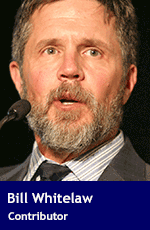 David Feick has an intriguing idea: why not make Canada’s energy chief story officer (CSO) a young Canadian?
David Feick has an intriguing idea: why not make Canada’s energy chief story officer (CSO) a young Canadian?
After all, that generation will be required to make the really tough decisions about the energy industry’s future.
If Canadians think it’s challenging now to wade through complex energy issues but that the future will somehow be less complicated, we’re seriously delusional. We haven’t come close to the toughest talk around energy.
Today’s discourse difficulties are a cake walk compared to what future generations will face – and we’re doing nothing constructive now to make it any easier for our children and their children.
The culprits are all over the place. Bureaucrats. Politicians. Energy companies. Academics. Non-governmental organizations. Folks who ought to know better.
It seems we’re all bent on using Canada’s energy future to plot a path toward national self-destruction.
Shame on us.
Feick, a Calgary-based financial communications expert at LodeRock Advisors, is among the many intrigued by the notion that Canadians have been poor storytellers – and listeners – when it comes to energy matters.
Feick has worked within the sector for years and knows the extensive library of stories that no one is reading – stories that would almost certainly throw a different light on a progressive sector.
We’re paying the price for the polarization that defines energy conversation. We have policy frameworks empty of substantive content to balance energy, the economy and the environment.
Feick believes that better grassroots storytelling will help ordinary Canadians know energy better – and trust the energy sector and themselves, in terms of energy consciousness.
Trust is lacking in the conversations Canadians have about energy – when they do converse. Trust is an elusive construct. It’s hard to develop and a devil to maintain.
It’s not that distrust of energy prevails among Canadians, it’s just that the small minority of voices opposed to oil and gas development has volume disproportionate to its actual size.
Why? Because the sector’s opponents are better storytellers. And they’re telling Canadians not to trust the oil and gas sector.
Those opponents know how to tug emotional heartstrings and that gives a certain credibility to the teller.
Here’s a key example of the narrative delivered by opponents: Canada’s oil and gas sector is greedily grinding the environment under its heel in pursuit of corporate profiteering.
The industry knows that’s far from the truth. Think of efforts like Canada’s Oil Sands Innovation Alliance (COSIA), which is defining a practical path to balance energy, the economy and the environment.
But how many Canadians know about COSIA? How many of the energy sector’s own employees know about it?
In the absence of effective energy storytelling, the industry’s opponents have rushed in to fill the vacuum with their stories.
But what if the energy sector’s CSO is 12-years-old – and will live in an energy future exponentially more complex than our energy present?
What if that CSO’s mandate is rooted in strategies that focus on effective trust building as an imperative to Canadian consensus building around energy and economic policy development.
Feick thinks it’s possible and he’s given it a lot of thought.
Feick believes the CSO concept could be a unifying national initiative. It would prompt young Canadians to think strategically through our energy challenges and opportunities. And it would take control of storytelling in a way that adults have failed to do.
So how do we make it happen?
Think Canadian Idol, with an energy literacy twist. A national platform showcasing ideas and talent. The challenge is for young Canadians to help all Canadians define the stakes and consequences of not getting energy dialogues right.
Feick calls them “our living future.”
Feick also sees this as bigger than fossil fuel, because energy systems of all types connect in a complex fashion.
“We’re a country blessed with an abundance of natural resources … and as Canadians, we own those resources and need to understand better how that impacts our quality of life. Our young people could be a unifying force around energy.”
Feick also believes a youth-focused CSO program would help Canada’s global reputation – and that it’s a concept governments at all levels, corporations and other organizations could support.
And it would inspire young innovators to pursue careers in energy.
Today’s major energy issues – carbon pricing, innovation decline, energy systems relationships, climate change and pipelines, for example – have bogged down the country.
It’s clear we need to find alternative ways of thinking through complex issues that are pushing the country apart at a time when it should be pulling together.
Can stories reverse this trend? Can trust-based narratives provide new focus?
It’s up to that majority of silent Canadians. Those ordinary Canadians are resource owners. But they have yet to step up and take ownership of, and responsibility for, the resources that underpin the quality of so much of what they enjoy.
Maybe Feick is right, that a 12-year-old can sort the adults out.
Bill Whitelaw is president and CEO at JuneWarren-Nickle’s Energy Group.
Bill is a Troy Media Thought Leader. Why aren’t you?
The views, opinions and positions expressed by columnists and contributors are the author’s alone. They do not inherently or expressly reflect the views, opinions and/or positions of our publication.
